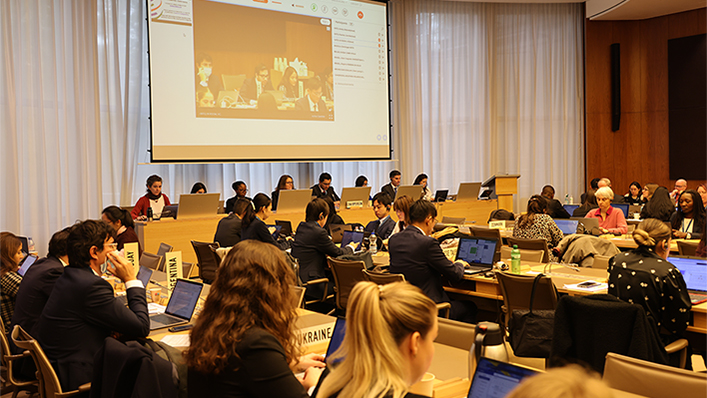
The MC12 SPS Declaration instructed the SPS Committee to launch a Work Programme to identify challenges in the implementation of the SPS Agreement and the mechanisms available to address them as well as the impacts of emerging challenges on the application of the SPS Agreement. The Committee established five thematic groups to undertake this work.
As mandated in the Declaration, the Committee reviewed the SPS Committee’s draft report to MC13. The report, prepared by the former Committee Chair acting as facilitator, Mr Tang-Kai Wang of Chinese Taipei, details key findings of the Work Programme and includes a recommendation for the Committee moving forward. Additionally, the Committee also reviewed a factual summary, prepared by the WTO Secretariat, explaining the process undertaken in the Work Programme and summarizing the discussions held in each of the five thematic groups.
Members agreed to finalize the factual summary, and some members asked for more time to consult with their capitals before adopting the draft report to MC13.
The Chair of the Committee, Mr Tayutic Mena of Costa Rica, stressed the notable progress made by members so far. He proposed leveraging the work done in order to ensure consensus once delegations requesting more time can endorse the document. Mr Mena suggested allowing members two weeks to continue internal consultations. After this, two additional weeks — until 15 December — would be provided for the consensus process.
Specific trade concerns
Members raised a record number of 55 specific trade concerns (STCs), seven of them for the first time in this Committee, covering a wide range of issues. New STCs addressed issues such as delays in import authorizations and publication of import requirements as well as import restrictions due to radionuclide contamination concerns, high pathogenicity avian influenza (HPAI), and certain pests. Products affected included seafood products, sweet citrus fruits, table grapes, apples, pears and marigold seeds, live poultry and poultry meat, and beef.
Several previously raised STCs pertained to pesticide tolerances and the environment, legislation for endocrine disruptors, legislation on veterinary medicinal products in relation to antimicrobial resistance (AMR, approval procedures for animal and plant products, and import restrictions due to various diseases, such as bovine spongiform encephalopathy (BSE), HPAI and African swine fever (ASF). The list of STCs discussed during the meeting is available here.
Thematic sessions
A thematic session on Risk Communication, Misinformation and Disinformation was held on 14 November 2023, as discussed by the SPS Committee in November 2022. The session explored concepts surrounding information manipulation and their relevance within the context and implementation of the SPS Agreement.
Speakers were invited to focus on the evolution of misinformation and disinformation, including its possible effect on policy decisions, how it is being deployed around agricultural food safety issues, and how members can identify and address it at early stages. The thematic session included perspectives and experiences from representatives of members, industry, consumer organizations and academia.
Presenters highlighted that misinformation and disinformation affect all and encouraged the Committee to keep seeking ways to further analyze the implications of misinformation and disinformation on SPS issues, underlining the importance of this type of discussion for regulators.
Members were invited to submit themes for the thematic sessions and/or workshop in 2024, which could also be organized on some of the topics to be undertaken during the Sixth Review of the Operation and Implementation of the SPS Agreement. The Chair asked members to bear in mind that every two years the Committee normally organized a workshop on transparency. This could be an option since the last workshop on transparency and coordination was held in June 2022.
Regarding the Sixth Review, the Committee adopted document G/SPS/W/346 with a proposed calendar to proceed with this exercise that must be undertaken at least once every four years. The Fifth Review started in March 2018 and was concluded by the Committee in 2020.
Information sharing
Japan provided information on the discharge of the Advanced Liquid Processing System (ALPS) treated water into the ocean and updated members on the safety of, and import restrictions on, Japanese food products regarding radioactive materials following the nuclear accident in Fukushima in 2011.
Other members also shared SPS-related information regarding the issuance of electronic phytosanitary certificates, the European Union Better Training for Safer Food Academy, a workshop on risk communication on maximum residue levels (MRLs) organized with Asia-Pacific Economic Co-operation (APEC), and two papers on innovation and sustainable growth in agriculture productivity and on enhancing food security through reform in agriculture, among other topics.
Next meeting
The next regular meeting of the SPS Committee is scheduled for 20-22 March 2024.
Share
Reach us to explore global export and import deals